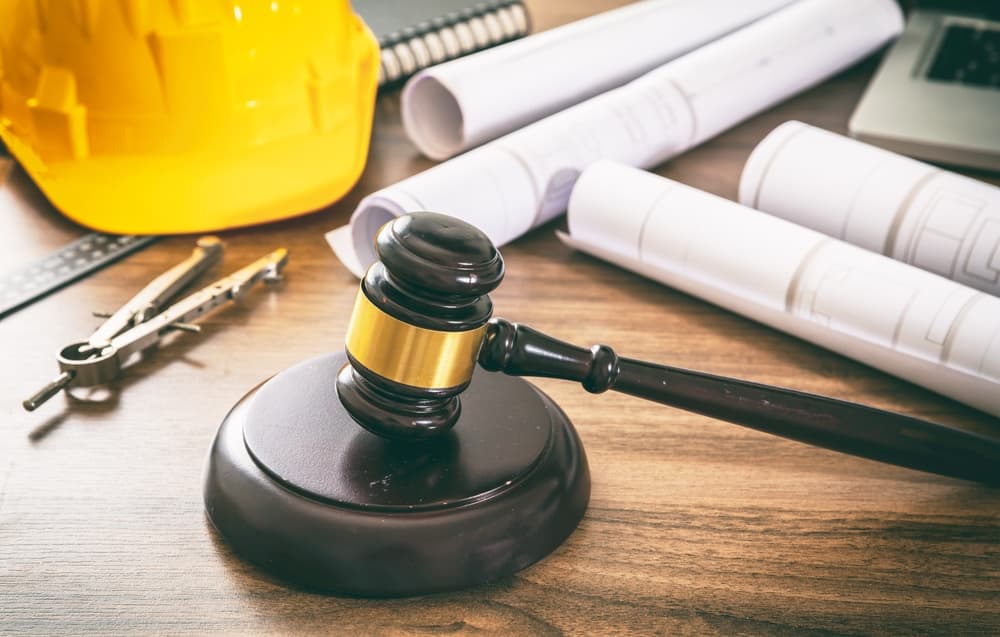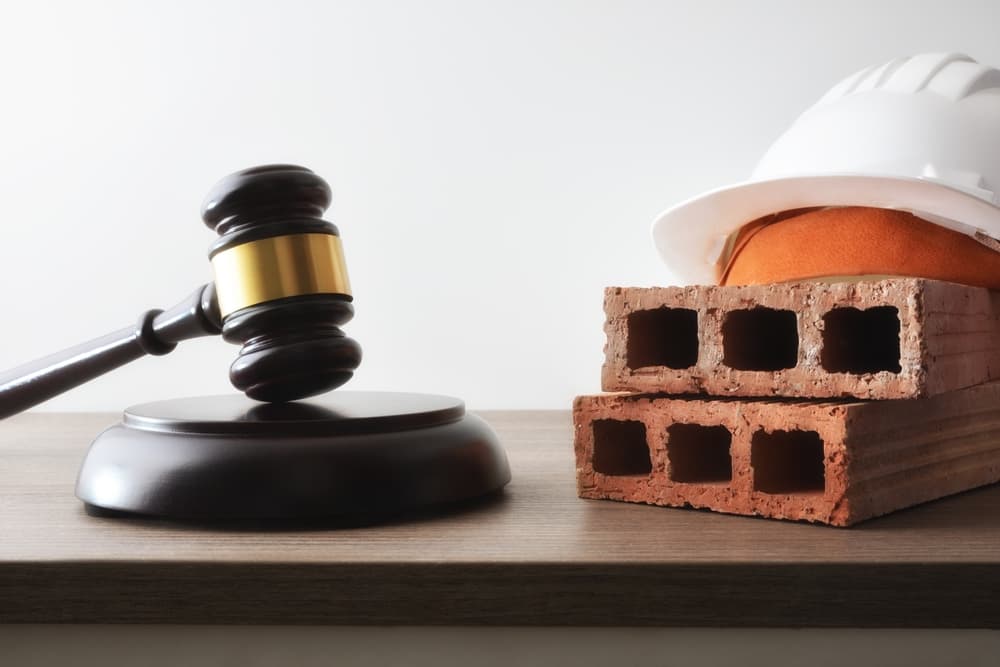How Do You Find the Right Seattle Construction Lawyer for You?
Finding the right Seattle construction lawyer begins with matching an attorney’s specific track record to your exact legal problem. Whether you are a homeowner discovering a defect, a contractor who hasn’t been paid, or a developer navigating a contract dispute, the most effective legal counsel will have a history of handling cases just like yours.
Construction law in Washington involves a complex set of regulations, from the state’s lien laws (RCW 60.04) to the specific Seattle Building Code. A single misstep could jeopardize your project, your finances, or your property. However, with precise legal guidance, you will be equipped to enforce your rights and protect your investment.
If you have a question about a construction dispute, call Dickson Frohlich Phillips Burgess for a direct consultation at (206) 621-1110.
First, What Kind of Construction Problem Are You Facing?
The term “construction dispute” covers a wide range of issues. Let’s identify what you’re up against.
Are You Dealing with a Payment Dispute?

- The Problem: You are a contractor, subcontractor, or supplier who has not been paid for completed work or materials. Your cash flow is suffering, and the project may have stalled.
- The Legal Angles: This probably involves enforcing contract terms, filing a mechanic’s lien against the property, or pursuing a payment bond claim. On public projects, this might fall under Washington’s Prevailing Wage Act or the federal Miller Act. These laws are designed to ensure that laborers and suppliers on government-funded projects are paid fairly.
- What to Look For: A lawyer who files and forecloses on construction liens. Ask them about their process and success rate in recovering funds for clients. This is a highly technical area of the law with strict deadlines, so a demonstrated history of success is a strong indicator of capability.
Have You Discovered a Construction Defect?
- The Problem: As a property owner, you’ve found issues like water intrusion, foundation cracks, faulty electrical work, or mold. These problems diminish your property’s value and pose safety risks.
- The Legal Angles: These cases involve claims of negligence, breach of contract, or breach of warranty against builders, architects, or engineers. The evidence required is highly technical, relying on expert reports and detailed inspections to prove that the work did not meet professional standards or contractual obligations.
- What to Look For: A firm that handles construction defect litigation. They should have a network of trusted construction and engineering consultants to help build your case.
Is There a Dispute Over the Contract?
- The Problem: A disagreement has erupted over the scope of work, project delays, or unexpected costs. This might involve disputes over change orders or disagreements about whether the work meets contractual specifications. These conflicts bring a project to a grinding halt, leaving both owners and contractors in a difficult position.
- The Legal Angles: This is about contract interpretation and enforcement. The case may hinge on the specific language of your agreement, including any arbitration clauses that dictate how disputes must be resolved outside of court.
- What to Look For: An attorney with a strong background in contract law and construction litigation. They should be able to analyze your contract and explain your rights and obligations in simple terms. A skilled lawyer identifies ambiguities or breaches that work to your advantage.
Are You Facing a Regulatory or Permitting Issue?
- The Problem: Your project is delayed or shut down due to issues with permits, zoning, or code violations with the City of Seattle or King County.
- The Legal Angles: This involves administrative law and dealing with local government processes. It requires a deep understanding of land use regulations and the Seattle Department of Construction & Inspections (SDCI).
- What to Look For: A lawyer with experience in land use and administrative law in Western Washington. They should be familiar with the local agencies and their procedures, giving you a better chance of resolving the issue efficiently.
What Qualities Define the Right Construction Lawyer for Your Case?
Once you’ve identified your core issue, the next step is to look for specific professional traits. Not every lawyer who handles construction cases will be the right fit for you.
Do They Have a Demonstrable Focus on Construction Law?
A general practice lawyer might handle a contract dispute, but construction law has its own set of rules. It is a specialized field with unique statutes, deadlines, and common practices that a generalist may not fully grasp.
Look at their website and case history. Do they consistently write about and handle construction issues? Our practice, for instance, focuses on construction and real estate law, which means we are constantly engaged with the issues that affect our clients in this industry. Firms with a deep focus are more likely to be up-to-date on recent changes in Washington law and local regulations.
Do They Have a Strong Reputation in the Seattle Legal Community?
The Seattle construction industry is a tight-knit community. A lawyer’s reputation among peers, opposing counsel, and judges matters. This reputation influences everything from settlement negotiations to courtroom proceedings.
Look for attorneys who have been recognized by their peers, based on confidential nominations and reviews from other attorneys in the same practice area. This kind of recognition usually points to a lawyer who is respected for their professionalism and knowledge.
Can They Explain Complex Issues Clearly?
You need a partner, not a lecturer. During your initial conversation, pay attention to how they speak. Do they use plain English or hide behind legal jargon? A good lawyer breaks down complicated legal terminology into easily understood concepts you use to make decisions.
Are They Trial-Ready?
While most construction disputes settle out of court, you need a lawyer who is prepared and able to take your case to trial if necessary. A lawyer’s willingness and ability to litigate give you leverage during negotiations.
Opposing counsel is more likely to offer a fair settlement if they know your attorney isn’t afraid of the courtroom. Their reputation as a capable litigator is one of your most powerful assets.
The Vetting Process: Key Questions to Ask a Potential Attorney
You’ve narrowed down your list. Now it’s time to have a direct conversation. This is your opportunity to interview them as much as they are evaluating your case.
Questions About Their Experience
- “How many cases like mine have you handled in the past two years?”
- “What was the outcome of those cases?”
- “Who is the primary attorney who will be handling my case?”
- “What is your experience with construction disputes in King County specifically?”
Questions About Strategy and Process
- “Based on what I’ve told you, what are the potential strengths and weaknesses of my case?”
- “What would be your initial steps?”
- “What is your philosophy on negotiation versus litigation?”
- “How will you keep me informed about the progress of my case?”
A Note on Consultations: Why We Don’t Offer Free Consultations
Some firms offer free initial consultations. These are typically brief meetings designed to screen potential clients and may provide limited, general information.
At Dickson Frohlich Phillips Burgess, we handle consultations differently. We schedule a comprehensive, paid meeting where we dedicate the time to thoroughly review your documents, listen to your story, and provide a substantive legal analysis of your situation.
This approach ensures that you walk away with real, actionable advice from the very first meeting, rather than just a sales pitch. It is an investment in getting your problem solved correctly from the start. You are paying for a legal service, not just an introduction.
How Seattle Construction Lawyers Structure Their Fees
Hourly Billing
How it works: This is the most common structure. You are billed for the time the attorney and their staff spend on your case, typically in increments of a tenth of an hour.
What to ask: “What is your hourly rate?”
Retainers
How it works: A retainer is an upfront payment you make to the law firm. The firm then bills their hourly fees against that amount. When the retainer funds are low, you will be asked to replenish them.
What to ask: “What is the initial retainer required for a case like mine?”
Flat Fees
How it works: For specific, well-defined tasks like filing a mechanic’s lien or drafting a contract, some lawyers may charge a single, upfront flat fee. This provides cost certainty for a particular scope of work.
What to ask: “Do you offer flat-fee arrangements for any of the services I might need?”
Contingency Fees (and Why They Are Rare in Construction Law)
How it works: The lawyer is paid a percentage of the amount recovered, and only if you win.
Why it’s uncommon: These are typical in personal injury cases. Most construction disputes involve defending against a claim or have complicated processes—like counterclaims and lien rights—that make a contingency fee impractical for the law firm.
What If You’re Already in a Dispute But Didn’t Hire a Lawyer at the Start?

Maybe you’re reading this after trying to handle a construction dispute yourself. Perhaps you’ve already argued with the contractor, sent angry emails, or even signed documents under pressure. Many people start down the path thinking they can resolve things quickly, only to find themselves deeper in confusion or facing new threats.
The good news is: it’s almost never too late to get help.
How a Lawyer Steps In Mid-Dispute
Immediate Damage Control
The first priority is to stop any further mistakes. Bring all correspondence, contracts, and records to your consultation. Don’t hide anything, even if you think you’ve made an error.
Assessing the Situation
We review the steps you’ve already taken, what’s been put in writing, and any agreements you’ve signed. Sometimes, what feels like a big mistake is fixable; sometimes, it sets new boundaries for what comes next.
Notifying the Other Side
Once we’re on board, we’ll notify the contractor, owner, or opposing attorney that you now have legal representation. From that point forward, all communication goes through us.
Preserving Evidence
If you’ve already begun repairs or work, we’ll advise you on the best way to document everything. This may involve photographs, inspection reports, or expert opinions to protect your position.
Limiting Further Exposure
If you’ve been threatened with legal action, liens, or demands for payment, we can often slow down or halt these processes while your case is reviewed.
What You Need to Know
There May Be Limits
If you’ve already missed a legal deadline, signed a release, or made binding promises, some options may be off the table. We’ll be honest about where things stand and focus on protecting your remaining rights.
Don’t Delete or Destroy Anything
Every email, text, invoice, and photograph is potentially useful. Even documents that seem unimportant may be critical later.
Act Quickly
In construction law, deadlines for filing claims or liens are strict. The sooner you bring in a lawyer, the more likely you are to preserve your best options.
Bottom line
Even if you didn’t start with a lawyer, getting experienced counsel now still makes a major difference. We’re used to picking up midstream and helping clients regain control.
Frequently Asked Questions About Seattle Construction Law
How long do I have to file a mechanic’s lien in Washington?
You must file a claim of lien within 90 days of the last day you provided labor, materials, or services. The deadlines are strict, so acting quickly is important to preserve your rights.
My contract says we have to use arbitration. Does that mean I can’t go to court?
Correct. If your contract contains a valid arbitration clause, you are generally required to resolve the dispute through a private arbitration process instead of a public court trial. An attorney helps you through this process, which has its own set of rules and procedures.
I’m a homeowner. Does the Washington Contractor Registration Act protect me?
Yes, the Contractors Registration Act requires contractors to be registered and bonded. If you have a dispute with a registered contractor, you may be able to file a claim against their surety bond to recover damages.
Can I sue a contractor for work that is not up to code?
Yes. All construction in Seattle must comply with the Seattle Building Code. A failure to do so is considered a breach of contract and may give you grounds for a lawsuit to cover the cost of repairs and bring the work up to the required standard.
Take Control of Your Construction Dispute with Dickson Frohlich Phillips Burgess

A construction dispute feels like it’s putting your future on hold, whether it’s your home, your business, or your livelihood.
Let our team at Dickson Frohlich Phillips Burgess put our years of experience in Seattle construction law to work for you. We are ready to listen and provide the straightforward, substantive advice you need to move forward.
Call us today to schedule your consultation at (206) 621-1110.



